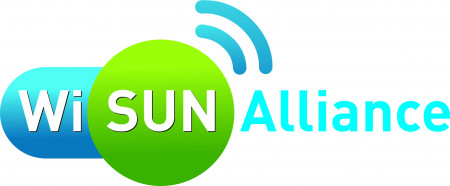Wi-SUN Alliance Report: IoT Security Fears Fall by Over 30% in the Last 5 Years as Data Privacy Concerns Grow for Companies Deploying Solutions

SAN RAMON, Calif., August 4, 2022 (Newswire.com) - Fears over security have become less of a concern for organizations adopting IoT solutions than it was five years ago, according to a recent study by Wi-SUN Alliance, a global member-based association of industry-leading companies driving the adoption of interoperable wireless solutions for use in smart cities, smart utilities, IoT and industrial IoT (IIoT) applications.
The Journey to IoT Maturity, a follow-up to Wi-SUN's 'state of the nation' IoT study in 2017, is based on interviews with IT decision-makers from UK and U.S. IoT adopters within key vertical industries, including energy and utilities, state and local government, construction, technology, and telecommunications. The clear signal is that IoT is now a bigger IT priority than ever for organizations across all sectors.
Those respondents ranking security as one of their top three challenges when rolling out IoT fell from 58% in 2017 to 24% in 2022, while the proportion of respondents viewing it as a technical challenge also dropped from 65% to 42%, indicating fewer concerns but still highlighting it as an issue. Companies might be less worried about security, but it is still on their risk list.
Concerns growing over data privacy
While security is becoming less challenging than it used to be, there are growing fears over data privacy issues. Data privacy regulation is the second highest (political, economic, or social) challenge for IoT adopters, with 36% placing it in their top three, just behind the need to reprioritize spending due to Covid-19 (37%) and ahead of budget cuts resulting from loss of revenue during the pandemic (35%).
Fears over big data have also risen over the last five years, with 19% of respondents (up from 11% in 2017) placing it in their top three IoT rollout challenges, and one in four citing regulatory concerns. The introduction of the General Data Protection Regulation (GDPR), California Consumer Privacy Act (CCPA) and other privacy regulations since Wi-SUN's 2017 report may be a factor in this growth.
Phil Beecher, President and CEO, Wi-SUN Alliance, comments: "Data privacy concerns have gone up, understandably, with more legislation putting the spotlight on data protection. Since our last study, stricter privacy laws have increased pressure on organizations to protect sensitive data. This includes the GDPR in Europe and various state-level laws in the U.S.
"Among our survey respondents, we saw that concerns were higher in the UK, where over half (53%) of organizations include secure data collection in their IoT strategies compared to just a third (34%) in the U.S. IoT initiatives, such as smart metering, streetlighting and those using environmental, air quality and acoustic sensors, are increasingly generating huge volumes of data, and while this information may be made entirely 'secure by design', the risks remain."
Industry reports suggest a growing number of attacks on IoT devices over the last two years leading to the theft of confidential data and the launch of DDoS attacks. Mirai is one of the most recognized IoT threats dating back to 2016 when it was used to compromise connected devices like routers to launch attacks on websites and networks. It is still used by malware developers to attack vulnerable systems, from manufacturing systems to critical infrastructure.
Wi-SUN's Phil Beecher adds: "While obstacles remain, organizations will need to continue to overcome both technical and non-technical challenges with the support of the industry, including IoT solutions and device companies. With more than 90% of our respondents recognizing that they must invest in IoT over the next 12 months to remain competitive, failure to navigate these important issues is not an option."
To read about the full range of barriers to IoT adoption, including security and data privacy, see the full Wi-SUN Alliance report.
Research methodology
Vanson Bourne interviewed 300 IT decision-makers in the U.S. (200) and UK (100), Jan-Feb 2022. Respondents were screened to ensure they were involved in their organization's IoT initiatives, and currently implementing at least one IoT project. Sectors: Business & Professional Consultancy, Telecoms, Construction, Technology, Energy & Utilities, State & Local Government, Agriculture and Logistics.
About Wi-SUN Alliance
Wi-SUN Alliance is a global non-profit member-based association made up of industry-leading companies. Its mission is to drive the global proliferation of interoperable wireless solutions for use in smart cities, smart grids and other Internet of Things (IoT) applications using open global standards from organizations, such as IEEE, IETF, TIA, TTC and ETSI. With 300 members worldwide, membership of the Wi-SUN Alliance is open to all industry stakeholders and includes silicon vendors, product vendors, services providers, utilities, universities, enterprises and municipalities and local government organisations. For more information, visit: www.wi-sun.org.
Wi-SUN Alliance and the Wi-SUN Alliance logo are trademarks of the Wi-SUN Alliance.
Source: Wi-SUN Alliance